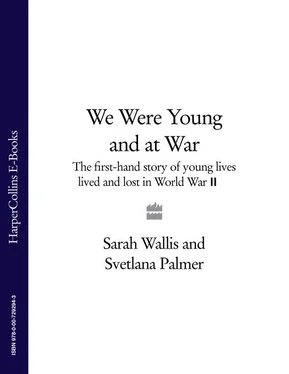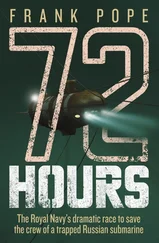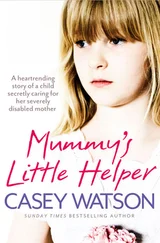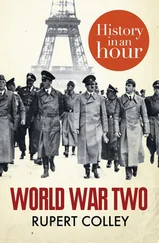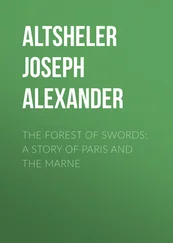At five in the afternoon, I listened to Hitler on the radio. He spoke from ‘ die befreite Stadt Danzig ’ [German, ‘the liberated city of Danzig’, or Gdańsk in Polish] after an ovation from the crowd. That speech showed he doesn’t deserve his reputation as a great statesman. He threw himself around, screamed, insulted, pleaded, buttered people up, but most of all he lied and lied. He lied that Poland had started the war, he lied about the persecution of Germans in Poland (‘ Barbaren! ’). He lied about his good peaceful intentions, etc. Then he came out with a string of insults directed at the Polish authorities, Churchill, Cooper (Duff) and Eden. He talked about his desire for a deal with England and France. He talked about the injustice of the Treaty of Versailles, saying that Poland will never exist in the borders decided by the Treaty. He said that the English effort to overthrow the ruling German government would never succeed—the best proof we’ve heard that the English are seriously attempting such a thing. At the end, he talked about his good relations with Russia (?…) and the impossibility of a German-Russian conflict. He ended his speech with a few phrases, full of pathos, about Gdańsk.
Three days later, Edward once again passed through Łódź, this time on his way home.
The city doesn’t look like there is a war on; it’s back to normal. Schools have been open again since 11 September. There are lots of German posters on the walls and Hitler’s flags all over. I feel like a stranger in my own country. There’s not much food in Łódź and people spend hours queuing for potatoes. We walk from Łódź to Kalisz.
We spend the night at the train station with 300 other people, waiting for a train which never comes. It finally arrives at about 3 p.m. It moves very slowly and I can see the wrecks of burned-out trains, and some freshly repaired bridges. We reach Kalisz at 8 p.m., where we wait for an hour. From there, we go straight on to Ostrów. At 3:30 a.m., after three weeks on the move, I am back at home. Everything is just as we left it, because our aunt lived there while we were away. The first thing we do is have a bath. You can imagine what we looked like at the end of our ‘adventure’!
Edward’s diary breaks off here. Within days, Poland surrendered and his home town of Ostrów was annexed into the Third Reich. As Polish language and culture were banned, all Polish citizens were subject to an intensive programme of Germanization. While the fate of Łódź and its 250,000-strong Jewish community remained undecided, Dawid described the immediate changes in the life of his neighbourhood.
Though it is just about possible for most clerks, workers and shopkeepers to go back to their work, it’s harder for Jews. Business people, shop owners, middlemen, merchants, etc., all are too afraid to go out in case they are picked up for forced labour and so lose their livelihood. They try selling things door-to-door, like most of our neighbours do—stockings, bread, sugar, knitted clothes, etc. Everyone has something to sell, the goods pass though the hands of dozens of middlemen, wholesalers and traders, but none of this can save the Jewish people from a rapid slide into poverty. My father has no work, he is just suffocating at home. We have no money either. A total fiasco!
Unfortunately, I haven’t managed to avoid the miserable fate of other Jewish people—forced labour. Some older people talked me into going to school along Wólczańska Street—a shorter route, and I went that way yesterday: there were swastikas on all the houses, lots of German cars, masses of soldiers and local Germans wearing swastikas. I managed to get through it yesterday, and today, emboldened, I went the same way. Near Andrzeja Street a German pupil ran up to me with a big stick in his hands and shouted;‘ Komm arbeiten! In die Schule darfst du nicht gehen! ’ [Come to work! You can’t go to school!]. I didn’t protest—I knew that a student card wouldn’t help. He took me to a square where some Jews had been put to work picking leaves off the ground. The sadist wanted to force me to climb some 2-metre high fence, but seeing that I wouldn’t do it, he went away. The work in the square was supervised by a soldier, who also had a big stick, and crudely ordered me to fill puddles with sand. I’ve never been so humiliated, I saw the smiling mugs of passersby laughing, enjoying the misfortune of others. The stupid, abysmally stupid louts! It’s they who should be ashamed, our tormentors. Humiliation inflicted by force is not humiliation! But anger, a helpless rage boils inside anyone forced to do this stupid work while being taunted. There is only one answer: revenge! After half an hour’s work, the soldier called all the Jews (some of whom had their caps turned back to front ‘for fun’), lined us up, ordered one of us to take back the spades and the rest to go home. Playing at being magnanimous!
I arrived at school in the middle of the first lesson, late for the first time in my entire school career. The teachers can’t do anything about it: ‘for reasons outside the Jews’ control’. I went home the old way, through Kilinski Street. At home mum was frightened to hear how I’d been forced to work. In the evening we found out that one of the Germans living in our street ‘keeps an eye’ on the Jews in our block of flats. This really upset my poor nervous parents. Meanwhile, at school, they’ve announced that pupils who don’t pay a sum of money will be barred. What’s going to happen to me?
Конец ознакомительного фрагмента.
Текст предоставлен ООО «ЛитРес».
Прочитайте эту книгу целиком, купив полную легальную версию на ЛитРес.
Безопасно оплатить книгу можно банковской картой Visa, MasterCard, Maestro, со счета мобильного телефона, с платежного терминала, в салоне МТС или Связной, через PayPal, WebMoney, Яндекс.Деньги, QIWI Кошелек, бонусными картами или другим удобным Вам способом.
